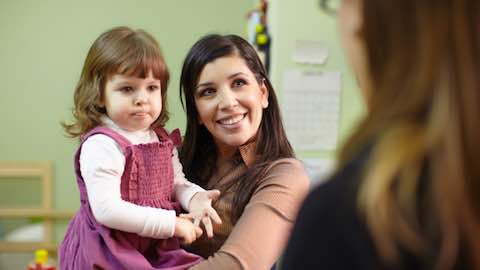- MENU
- HOME
- SEARCH
- WORLD
- MAIN
- AFRICA
- ASIA
- BALKANS
- EUROPE
- LATIN AMERICA
- MIDDLE EAST
- United Kingdom
- United States
- Argentina
- Australia
- Austria
- Benelux
- Brazil
- Canada
- China
- France
- Germany
- Greece
- Hungary
- India
- Indonesia
- Ireland
- Israel
- Italy
- Japan
- Korea
- Mexico
- New Zealand
- Pakistan
- Philippines
- Poland
- Russia
- South Africa
- Spain
- Taiwan
- Turkey
- USA
- BUSINESS
- WEALTH
- STOCKS
- TECH
- HEALTH
- LIFESTYLE
- ENTERTAINMENT
- SPORTS
- RSS
- iHaveNet.com: Parenting

When Another Parent Posts Online Content About Your Kid
by Bev Bachel
If you’re not a fan of people posting pictures of your kids online without your permission, you’re not alone.
According to a Pew Research Center survey, 57% of Facebook users with kids under age 18 dislike it when other people post pictures of their kids without first asking for the OK.
So what should you do when another parent posts a photo of, or comment about, your kid that you prefer were taken down?
To find out, I turned to psychologist and manners guru Alex Packer, the author of How Rude!: The Teenagers’ Guide to Good Manners, Proper Behavior, and Not Grossing People Out.
Here’s what he had to say:
Take 10
“Assuming the post does not put your child or family at risk, the most important thing to do immediately is … nothing,” says Packer. “That way your response will be guided by reflection, maturity and good judgment rather than protective Mama- or Papa-bear attack instincts.”
Figure out what’s troubling you
Before responding, consider why you object. Is it on general principle, or because the post might get your child in trouble? Is it because the photo is unflattering or because it compromises your child’s safety? “Knowing why you object is important for knowing how to respond,” he says.
Consider your child’s age
“Your response should also take into account the age of your child and whether he or she is old enough to feel embarrassed or violated,” he says. For example, you may decide to say nothing about a photo of your toddler at the beach in her birthday suit, but react more strongly if someone posts a questionable photo of your teenage daughter in her bikini.
Ask your kids
Are they upset? If so, do they want the post or photo removed? Or do they feel that you’re making a big deal out of nothing?
Assuming you do feel the need to set boundaries about the online content posted about your child, here are Packer’s tip for how to broach the conversation:
Assume they meant no harm
Most likely the other parent thought the photo was not a big deal, or they just didn’t think about it much before posting.
Think about what you want
What do you hope to achieve? Do you simply want to express your opinion, have the post or photo taken down, or establish a no-posting-without-permission rule moving forward?
Choose a private method of communication
“Phone calls, face-to-face meetings and email allow for thoughtful, complete and nuanced expression,” Packer says. “You may also use that charmingly antique medium of conversation known as ‘writing a letter.’ But texting, tweeting and social media postings are not allowed.”
Engage in friendly chitchat before getting to the heart of the matter
“Your goal is to create a mood where your words will be heard without provoking a defensive or hostile response,” he says. Here are two examples of such conversation starters: 1) “Isn’t it amazing, we’ve driven each other’s kids all year but never had a chance to chat in person.” 2) “Jamie had such a fabulous time at Chris’s party. Sounds like it was a great occasion.”
Focus on your needs, not what they did
Here are two examples:
1) “I know people have different feelings about this, but we are very concerned about privacy and safety and follow strict limits as to what we and our children put online. So I was concerned to discover the photo of Ben.”
2) “Kate was very upset that her photo was posted without permission. Could you please remove it? And in the future, please check with me or her mom before posting anything online about her.”
Freelance writer Bev Bachel lives in Minneapolis and uses her phone to talk, text and email friends and family around the world. She’s the author of What Do You Really Want? How to Set a Goal and Go For It!
AUTOS | HOBBIES | EDUCATION | FAMILY | FASHION | FOOD & RECIPES | HOME DECOR | RELATIONSHIPS | PARENTING | PETS | TRAVEL | WOMEN
Parenting: "When Another Parent Posts Online Content About Your Kid"